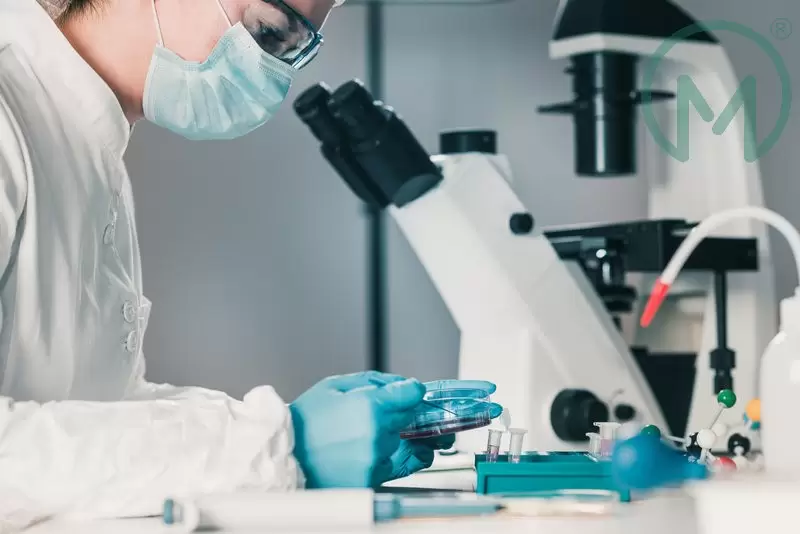
Co-culture is a procedure aimed to improve the success of the IVF and to obtain high quality embryos growing in a culture medium, which provides the embryos with nutritional products, on top of a layer of granulosa or endometrial cells.
This culture medium promotes the development of high-quality embryos.
This procedure has been usually performed in some patients with history of unsuccessful IVF cycles due to extremely poor embryo quality.
What is Co-Culture?
A type of auxiliary nutrient medium prepared for the embryo using intrauterine cells is called co-culture. The most commonly used type of co-culture method is endometrial co-culture. In the endometrial co-culture method, a tissue sample is taken from the patient’s endometrium, that is, the uterine wall, on the 21st day of the menstrual period with the help of a cannula. This tissue sample can be frozen and stored for later use, or it can be cultured for use immediately at that time. It is possible to create an artificial intrauterine tissue by storing the tissue sample in a laboratory environment using special media. The embryos obtained can be transferred to be cultured on artificial uterine tissue.
During this time, some substances released by the uterine cells aim to nourish the embryo as in its natural environment and ensure better quality development. The co-culture medium, which contains the substances necessary for the development of the embryo, also contains substances that remove residues that may be harmful to the embryo from the embryo’s surroundings. The resulting embryos are usually transferred between the 5th and 6th days, known as the blastocyst stage. Co-culture can be used as an auxiliary technique in couples with recurrent IVF failures and those with slow and/or poor quality embryos.
How is Co-Culture Applied?
Intrauterine tissue culture application has become a new source of hope for couples who cannot conceive despite repeated IVF treatments and whose embryos develop slowly and/or poorly.
Within the scope of co-culture application, a small tissue sample is taken from the uterus on the 21st day of the menstrual period and the tissue sample is separated in a laboratory environment. The cells are multiplied in devices that mimic their natural environment for approximately 20 to 30 days, in other words, until the day of egg collection. The fertilized eggs, or embryos, are placed in wells where the cells act as a cushion. Since the woman’s own endometrium, or intrauterine cells, are used during the application, AIDS, jaundice and other risky conditions can be ruled out.
Due to their structural features, endometrial cells do not harm embryo development, but they also ensure the continuation of embryo development and increase the chance of growth. In a co-culture environment, the relationship between the embryo and the uterine tissue develops in a way similar to that in the body. The embryo and the expectant mother’s uterine wall cells meet and get used to each other. Co-culture is extremely rich in terms of the factors and proteins needed for embryo development. The growth factors and nutrients found in co-culture fluids also support embryo development.
The artificial culture medium offered ready for use for in vitro fertilization has limited growth factors and proteins. Therefore, co-culture is an alternative to ready-made culture fluids for patients who have failed repeated in vitro fertilization treatments. Since the preparation of endometrial co-culture requires intensive labor and technical infrastructure, personnel with expertise, experience and training in this field are needed.
While co-culture provides the rich nutrient medium needed for the development of the embryo, it also minimizes the damage of toxic wastes. It is believed that there is a positive chemical interaction between these cells taken from the mother’s uterus and the embryo. This interaction increases the chance of pregnancy by clinging to the uterus.
Working Hours
- Monday: 09:00 – 18:00
- Tuesday: 09:00 – 18:00
- Wednesday: 09:00 – 18:00
- Thursday: 09:00 – 18:00
- Friday: 09:00 – 18:00
- Saturday: 09:00 – 18:00
- Sunday: Closed
